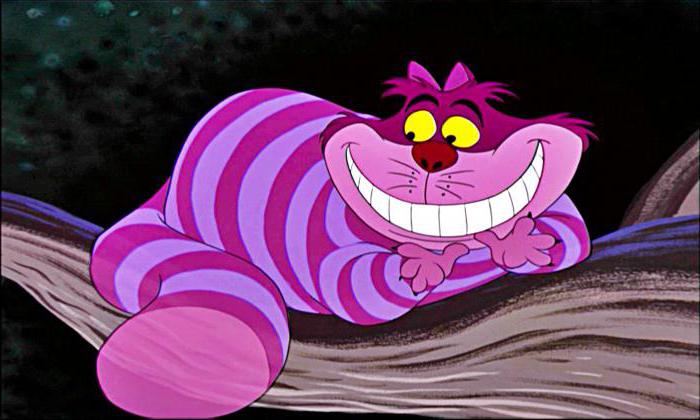Let's talk about a buzzword that is familiar to many, but there is no clear understanding of what it means. Attention is paid to the adjective "surreal". It will be interesting, at least.
Surrealism is ...
An entertaining and bold movement of the early 20s of the 20th century. The founder is Andre Breton (1896-1966). It was from his pen in 1924 that the first manifesto of surrealism came out. The basic concept of the doctrine is “surrealism”, that is, if literally translated from French, “super- and suprareality”. The figures of the movement wanted to rejuvenate the old woman-reality, saturating her with new meanings. The main principle of direction is a mixture of reality and dreaming. Two opposing entities were combined in bizarre collages in the same way as they usually do in a dream, or by moving non-artistic, mundane objects into the artistic environment, thus creating art. This technology is called the foreign phrase ready-made.
It is not surprising that the representatives of the movement wanted freedom and revolution, but above all - the restructuring of consciousness, rightly believing it was precisely the beginning of all changes. What is the point of putting a person in the new conditions of being, if he is not mentally ready for this yet? That's right, no! In order to better understand what surreal means, it is necessary to penetrate deeper into the ideas of the movement itself. Consider the latter at least a little.
Ideological basis and main topics
Surrealists did not hesitate to experiment: they worked under hypnosis, alcohol and drug dope, starved themselves - and all this only in order to disperse their own unconscious. Freud's term here is not accidental, since it was his ideas that inspired the surrealists, but not all. For example, Rene Magritte was calm about the doctrine of the unconscious. By the way, his picture is in the first photo. The reader probably knows her.
Surrealists were primarily interested in magic, eroticism, and the subconscious. From this listing is already breathtaking. Therefore, it is not surprising that surrealism remained in culture and in language. The reader probably already thought that we had forgotten why we had gathered here. But no, we remember: we are expected to explain the adjective "surreal". This is not a problem, because we already know the main content of the doctrine, from which it came. Everything is very simple. Surrealistic - not related to reality, at least to the one that everyone is used to. This is reality, different, different, saturated.
Synonyms
Replacement words are especially useful here. Sometimes, of course, this subsection seems a formality, but not now, when such a complex concept is considered. Synonyms are really necessary. So here they are:
- absurd;
- magic;
- magical;
- unrealistic;
- dreaming.
Unfortunately, giving an unambiguous interpretation to the adjective “surrealistic” is sometimes a difficult task. But usually people use it in the meaning of "absurd". It is unlikely that anyone will go into dictionaries and read about the history of the movement that Andre Breton founded. Although we do not exclude that there may be such people. Then the latter use the term with full understanding.
“Route 60” (2002)
The film was released a long time ago, 15 years have passed since then. But in the space of culture, time no longer matters. The most interesting remains, but the passage disappears and falls out of human life and disappears from memory. But “Route 60” continues to be watched. And not least because the adjective "surreal" is applicable to the film. This will become apparent if you turn to the material again, or for the first time enjoy a movie.
And even the main character, Neil Oliver, pronounces the word “sur” when he is interviewed for a job. And this is a clear reference to our topic today. And here we need to return to the fact that "surrealism", as a concept and a certain sensation of being, actually has no analogues. Yes, people say “sur” when the absurdity of existence becomes apparent to them, but still philosophical absurdism (A. Camus, L. Shestov) or literary (D. Harms) has little to do with genuine surrealism.
What is worth adding? The phrase "surreal impression" is closer, rather, to a magical sensation. But there are no canons. Now the reader knows the history of the movement and its basic ideas and can understand perfectly well what surrealism is. The true mastery of some knowledge is not so simple, because it is complex in itself.
"Alice in Wonderland"
By the way, speaking of dreaming reality, you can not forget the wonderful work of Lewis Carroll. “Alice in Wonderland” is surrealism until it is officially recognized. What? All features on the face. Unless there is no eroticism in the composition. But, one must understand that, firstly, this is the Victorian era, and secondly, it is still a fairy tale for children. Although the original addressee, that is, the child, there is little to understand. Rather, the entire depth of the author’s mockery of reality is inaccessible to him. The surreal impression of prose is captured easily. Lewis Carroll was probably the forerunner of surrealism, one way or another. But we also agree that putting the action of history in a dream is a convenient technique. If there is criticism, you can always say: "This is a dream, only a dream." What in this case can be a complaint to the author? True, the trick did not always work in the Soviet Union.

So, we understood what surreal means. This is not to say that the adjective is in demand by the masses, but sometimes it is used. There remains one more blank spot in the problematic: can there be a surreal nightmare? However, we intentionally leave this question unanswered so that the reader has something to think about in the cold summer of 2017.